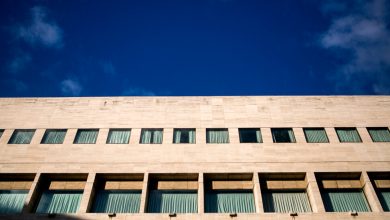Texas County Keeps Public Libraries Open Amid Book Ban Controversy

A small Texas county decided to keep its public libraries open during a heated public meeting in which county commissioners weighed whether to shut down the library system after a judge ordered the county to restore banned books to its shelves.
The decision was seen as a victory for a group of residents who had sued the county and library officials, arguing that the book removals were unconstitutional and violated citizens’ First Amendment rights.
The judge, Robert Pitman, of the U.S. District Court for the Western District of Texas, ordered Llano County to return the books to their place while a lawsuit over the banned books, brought on by a group of county residents, proceeds. After the judge’s order was issued, county commissioners called a special meeting to decide whether to “continue or cease operations” at the library.
The ongoing fight has divided the community and made Llano, a rural county in central Texas about 80 miles northwest of Austin, a new testing ground for citizens invoking First Amendment protections in the face of rising book bans.
Several of the books in question in Llano County have L.G.B.T.Q. themes or characters, or addressed racial inequality, but they also include goofy children’s titles, such as a series of picture books about flatulence.
Nationally, attempts to remove books nearly doubled last year over 2021, according to the American Library Association. There were 1,269 attempts to ban books and other resources in libraries and schools last year, the association found, the highest number since it began studying censorship efforts more than 20 years ago. The vast majority of the books are by or about L.G.B.T.Q. people or people of color, the association reported.
The battle over the contents of Llano County’s public libraries started in 2021, when library officials began removing specific books after members of the community complained that the titles were inappropriate for children — including Maurice Sendak’s “In the Night Kitchen” and Robie H. Harris’s “It’s Perfectly Normal: Changing Bodies, Growing Up, Sex, and Sexual Health.”
According to legal documents, a county judge, Ron Cunningham, later ordered a librarian to remove additional books about L.G.B.T.Q. issues and race, among them “Caste,” by Isabel Wilkerson, and “They Called Themselves the K.K.K.: The Birth of an American Terrorist Group,” by Susan Campbell Bartoletti. Library officials then suspended access to the library’s online lending system, OverDrive, because the banned titles were still available digitally, and fired a librarian who refused to remove the books in question.
In April of last year, a group of Llano County residents sued the county commissioners, the library board and the library systems director, arguing that their First Amendment rights were violated by the book removals. They cited legal precedent supporting their argument, including a 1982 Supreme Court decision in Island Trees School District v. Pico, in which the court ruled that government officials can’t remove books from libraries “simply because they dislike the ideas contained in those books.”
The defendants’ claim to be “on a hunt to eradicate ‘pornographic’ materials” was a pretext, plaintiffs argued in their complaint, saying, “None of the books Defendants have targeted is pornographic.”
Judge Pitman agreed that the removals were unconstitutional and that the actions appeared to be motivated by “complaints from patrons and county officials over the contents of these titles,” which would violate citizens’ rights to freely access information. On March 30, he ordered the county to restore the titles within 24 hours, and barred officials from removing any more titles “for any reason” while the lawsuit proceeds.
The defendants have argued that there was no First Amendment violation because libraries have discretion over the content in their collections, and that residents could still access the removed books through other channels. A trial is scheduled for this fall.
The fight in Llano County is a more extreme example of the conflicts brewing in school districts and communities across the country as libraries face a growing wave of increasingly coordinated and politicized book banning efforts.
While the majority of book ban efforts are aimed at school libraries, public libraries like those in Llano County have been impacted as well: In 2022, around 40 percent of the challenges that the American Library Association tracked targeted material in public libraries.
Some Llano residents were shocked by the possibility of losing access to the county’s public libraries and the services they provide, including free internet.
Gretchen Hinkle, a Llano resident, went to the meeting on Thursday to make a case for keeping the library open.
“I don’t think libraries are meant to be a curated collection of government-approved ideology,” she said. “What happens here may provide a foothold for similar actions in other communities, and it’s the citizens who will pay the price.”
Hours before the commissioners’ meeting on Thursday, dozens of residents waited outside to enter the venue.
The crowd included people who are in favor of keeping the books out of libraries and closing the libraries if necessary.
Lisa Bellamy, the president of the Llano Tea Party and mother of two sons in high school, said she supported the idea of closing the library if the commissioners found it necessary.
“The books talk about many topics that are adult topics,“ she said. “Parents believe they can leave their children in the library and they will not be harmed, but examination proves otherwise.”
More than a half-dozen spectators sang several choruses of “Amazing Grace” during a break, while the commissioners were in executive session. Jason Herron, a 6-foot-7 sales representative who described himself as “a citizen of God’s kingdom,” led a group in prayer.
Among those who supported keeping the library open was Katie Burrescia, who lives in Llano County and takes her three young children to the library two or three days a week, and said the library was a vital resource for her family and other residents.
“The library is a pillar of our community,” she said.
Others who oppose the book removals in Llano County say they amount to government censorship, and argue that the law is on the side of those who want the books returned.
Suzette Baker, a former librarian at the Kingsland branch in Llano County who was fired after she refused to remove books, said she feared an erosion of civil liberties.
“This is obviously a violation of people’s rights,” Baker said.





